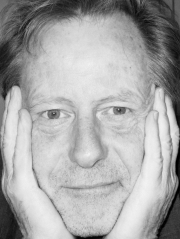This month, we talk semantics with Martin Stokhof, Professor of Philosophy of Language at the Institute for Logic, Language, and Computation in Amsterdam. Click here to listen to our conversation.

Formal semanticists are in the business of spelling out the rules by which the meaning of a sentence in English (or French, or Spanish, or some other human language) are derived from the words in it and the way they’re put together. You might think this is pretty straightforward, but see our interview with Hans Kamp for some nice examples of how the enterprise gets tricky rather quickly. Basically, the issue is that it’s very complicated, in practice, to model the messiness of human language in a super precise way–in a way that, for example, a computer could understand.
In our discussion, Stokhof observes out that formal semantics has to make certain simplifying assumptions about the nature of human language. For example, a standard assumption of both semantics and the philosophy of language is that the meaning of a sentence is whatever situation must obtain in the world in order for the sentence to be true. (Philosophers call this the ‘truth-conditional’ theory of meaning.) But the things we actually utter do a lot more than just convey information; some of them create and reinforce power relations, some of them raise issues to be resolved, some of them make jokes, some of them are used as insults, and so on. What Stokhof points out is that every time semanticists want to include some new feature of language in their theory, they have to build a whole new theory from scratch.
According to Stokhof, this is a symptom of the fact that although formal semantics is certainly accomplishing something interesting, formal semanticists have yet to really nail down what exactly they’re doing. And this is where the philosophy of the later Wittgenstein comes in; by emulating Wittgenstein’s sensitivity to the heterogeneity of language’s many different functions, semanticists can get clearer about their own explanatory ambitions.
Tune in to hear more about what we stand to learn about semantics and the philosophy of language from the later Wittgenstein’s writings!
Matt Teichman